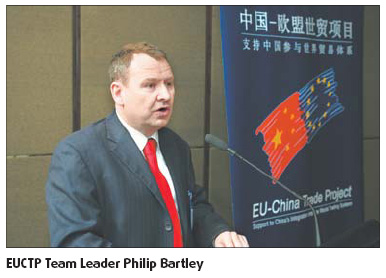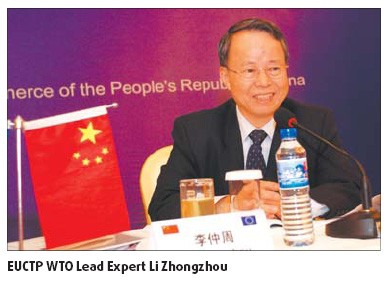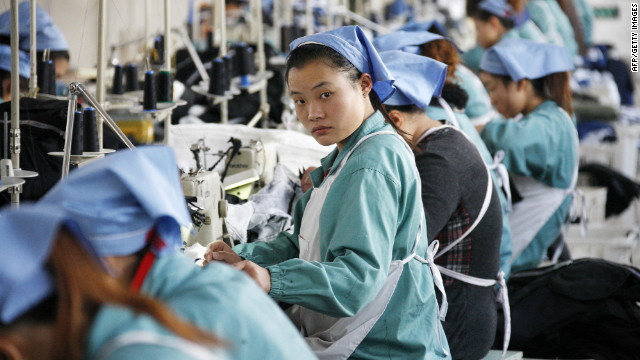 "Reforming an economy as large as China's can't be done overnight and China still has some way to go in its trade reform agenda," said Team Leader Bartley, stressing that: "There are notable examples of progress, pointing to China's Anti-Monopoly Law (AML). Establishing a fair competition regime in China was a key requirement of China's WTO membership and was necessary to govern China's growing market economy." The Anti-Monopoly Law, which entered into force on August 1, 2008 is China's first unified legislation regulating competition and is a milestone in the development of China's legal system. "As competition policy is already well established in the EU," said Bartley, "so then it was possible for China to tap into the EU's experience. The EUCTP therefore played a significant role by supporting both China's National People's Congress and the State Council during the crucial drafting phase of this competition legislation, resulting in contributions from European law in structure, terminology and concepts. Expertise has been provided to China's anti-monopoly enforcement authorities, MOFCOM, National Development and Reform Commission (NDRC) and State Administration for Industry & Commerce (SAIC), to support the implementation and enforcement of the AML. In addition, the EUCTP has also supported the Supreme People's Court in their efforts to draft the judicial interpretation of the AML by organizing a study visit to Europe for Chinese judges.
 EU-China cooperation is on a firm footing now as Chinese officials have completed a series of internships in Europe's Competition authority and as China and the EU have already organized two EU-China AML Weeks since the AML entered into force." Expert Li Zhongzhou added that: "China's WTO commitments required the simplification and standardization of customs practices allowing for an easier flow of goods and lower import tariffs and this has helped to reduce trade barriers. Again it is clear that having strong experience in customs reform from the EU Customs Union and initiatives such as the EU Customs Blueprints, the EU has been well placed to provide expertise in customs reform in China, with notable contributions from the EUCTP." "It's not all plain sailing, however," said Bartley. "When trade disputes arise between the EU and China it is EUCTP experts who can play a useful role in examining the problems and studying the options. Challenges in levelling the playing field still exist. The European Union Chamber of Commerce in China, while consistently recognizing the progress in trade reform that China has made, points out that some sectors remain off limits to European companies and further and faster reforms are required. Market access and procurement rules are two important areas and priorities requiring further attention from the Chinese government."
|
|
European experts recognize Chinas trade reform progress
Updated: 2009-11-30 Source: China Daily

Recommended News
Photo Gallery
Most Popular



